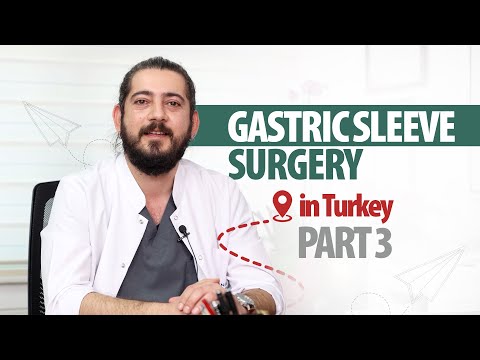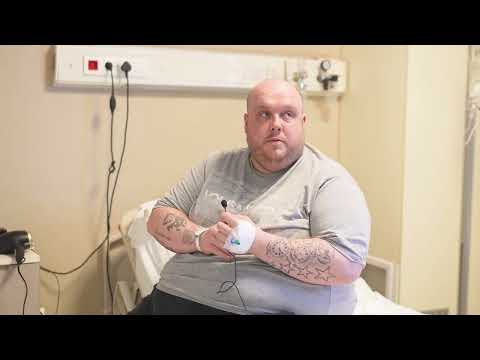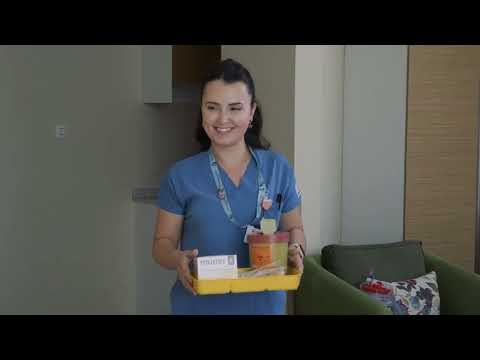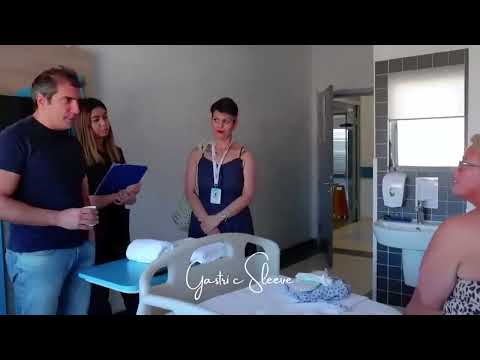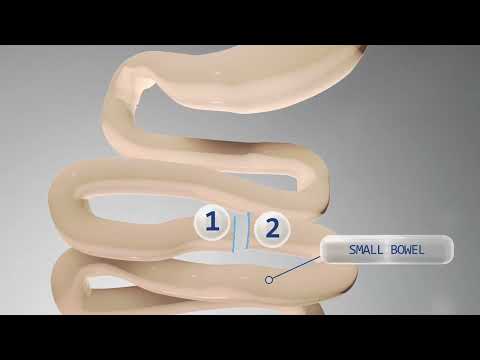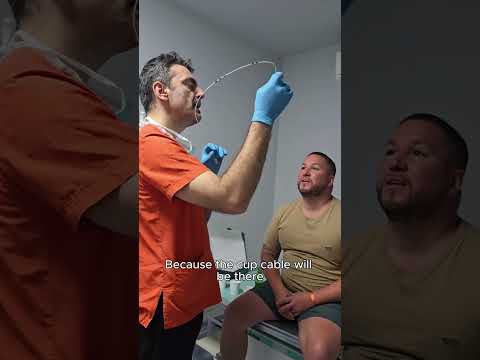Gastric Bypass in Turkey | Bridge Health Travel
Calculate Your Cost / Price
Gastric Balloon in Turkey
Gastric Balloon in Antalya / Turkey, Gastric balloons are made of materials that can remain in the body for 6 to 12 months. Gastric balloon prices vary depending on factors such as the type of balloon used in the procedure and the duration it remains in the body.
What is a Gastric Balloon ?
The World Health Organization defines obesity as the excessive accumulation of fat in the body. According to the criteria of the World Health Organization, obesity can be defined when the body mass index is above 30. It is well known that there are many health problems associated with the global epidemic of obesity. These include serious health problems such as cardiovascular diseases, diabetes, and hypertension. Therefore, obesity needs to be treated not only for aesthetic purposes but also for a healthy life. Nowadays, there are many surgical and non-surgical options available for the treatment of obesity. The decision regarding which treatment to apply to an obese patient is made by considering factors such as the patient's height, weight, age, and general health condition under the supervision of an expert doctor. Gastric balloon is one of the commonly preferred non-surgical treatment methods for obesity. The main purpose of gastric balloon treatment is to reduce the amount of food consumed in a single meal and provide a long-lasting feeling of fullness. Gastric balloons are silicone devices that are inserted into the stomach and can remain there for a certain period of time. The gastric balloon procedure involves placing a deflated balloon into the stomach and then inflating it with saline or a biocompatible and approved blue dye. The inflated balloon occupies more than half of the stomach. The amount of inflation is determined during the procedure, considering that everyone's stomach structure and anatomy are not the same. The endoscopic gastric balloon procedure takes approximately 30 minutes to 1 hour.
How is Gastric Balloon Placement Procedure Done in Antalya / Turkey?
Before the gastric balloon is placed in the stomach, the patient undergoes a detailed evaluation by expert doctors. The patient's general health condition is examined, and any other stomach-related health problems are assessed through endoscopic imaging techniques. If any other health problems such as reflux, gastritis, or ulcers are detected during this examination, the existing health issue is treated first. Afterward, the gastric balloon can be placed. During the gastric balloon placement procedure, general anesthesia is not required. The patient is under sedation while the balloon is being placed. The patient does not experience any pain or discomfort during the procedure. Currently, gastric balloon can be placed in the stomach through two different methods:
ENDOSCOPIC GASTRIC BALLOON IN TURKEY / ANTALYA
During the endoscopic gastric balloon procedure, sedation is administered to make the patient more comfortable. Since the procedure is performed using an endoscopic technique, the patient is advised not to eat or drink anything for a certain period of time before the procedure. The necessary preparations before the procedure are explained to the patient. During the balloon placement stage, an endoscope, which is a thin and flexible tube with a camera at the tip, is inserted into the stomach, and the balloon is placed in the stomach. Then, the balloon is inflated with saline or a completely compatible and health authority-approved blue dye. The inflated balloon occupies approximately more than half of the stomach. Since everyone's stomach structure and anatomy are not the same, the decision on how much to inflate the balloon is made during the procedure. The endoscopic gastric balloon procedure is completed within approximately 30 minutes to 1 hour.
FQ About Gastric Balloon Clinic in Antalya / Turkey
The intragastric balloon is a non-surgical weight-loss method where a balloon is inserted into the stomach to reduce its capacity temporarily. While it can be an effective weight-loss tool, patients may experience side effects like nausea, vomiting, abdominal discomfort, acid reflux, and, in rare cases, balloon deflation or migration. Most side effects occur in the first few days after the procedure and can be managed with medication.
Abdominal surgery involves any operation performed in the abdominal region, such as appendectomies, hernia repairs, or cancer removals. Minimally invasive techniques, like laparoscopy, have become common, reducing recovery time and post-operative complications.
Roux-en-Y gastric bypass is one of the most common bariatric surgeries, combining restrictive and malabsorptive techniques. It helps patients lose weight by creating a small stomach pouch and bypassing part of the small intestine, reducing calorie absorption. Its highly effective but requires lifelong dietary changes and nutritional supplementation.
The primary difference between mini gastric bypass surgery and a full gastric bypass is that the mini version of the surgery is performed in a modified manner that involves less intestinal rerouting and a shorter overall surgery time. After surgery, you should avoid nonsteroidal anti-inflammatory drugs (NSAIDs), such as aspirin, ibuprofen (Motrin, Advil) and naproxen (Aleve). NSAIDs increase the risk of stomach ulcers. Patients who had gastric bypass surgery should avoid these medications indefinitely. Bread, Rice... +More
The "fat jab," also known as Saxenda or liraglutide, is an injectable weight-loss drug that has been approved for use on the NHS in the UK for individuals struggling with obesity. It is intended for use in conjunction with a reduced-calorie diet and increased physical activity. The medication helps control appetite, leading to weight loss. It is typically prescribed to those with a BMI over 30 or individuals with weight-related health problems.
Similar to slimming injections, fat loss injections such as lipotropic injections are designed to enhance metabolism and fat-burning processes. These injections often contain a combination of nutrients like B12, amino acids, and other compounds that may help with fat breakdown, but their efficacy varies.
Mild erythematous refers to slight redness or inflammation, often found during endoscopic exams. In the stomach or intestines, it can indicate irritation or early stages of inflammation caused by infections, acid reflux, or mild gastritis.
Gastric Sleeve is far less invasive than the full Gastric Bypass and the Mini Bypass surgery. For weight loss, if the patient needs to lose 100 or fewer pounds, they really should consider gastric sleeve surgery, and if they need to lose between 100 and 150 pounds the Mini Gastric Bypass is a better surgical option
ANTALYA GASTRİC BALLOON 2025 PRİCES, ANTALYA GASTRİC BYPASS 2024 PRİCESGASTRİC BALLOON PRİCES 2025 GASTRİC SLEEVE PRİCE ANTALYA / TURKEY GASTRİC BALLOON PRİCES VARY DEPENDİNG ON THE BALLOON TYPE AND THE HOSPİTAL AND PHYSİCİAN WHO WİLL PERFORM THE PROCEDURE.In some cases, the procedure is performed with light sedation given to the patient. However, this is one of the procedures performed on the condition that it remains in the stomach for a certain period of time. It remains in the stomach for approximately 6... +More, TURKEY'S BEST HOSPİTAL FOR GASTRİC SLEEVE SURGERYANTALYA GASTRİC BALLOON 2025 PRİCES, ANTALYA GASTRİC BYPASS 2024 PRİCESGASTRİC BALLOON PRİCES 2025 GASTRİC SLEEVE PRİCE ANTALYA / TURKEY GASTRİC BALLOON PRİCES VARY DEPENDİNG ON THE BALLOON TYPE AND THE HOSPİTAL AND PHYSİCİAN WHO WİLL PERFORM THE PROCEDURE.Gastric sleeve surgery is a bariatric procedure that involves removing 75-80% of the stomach. This procedure is currently the most commonly performed bariatric surgery worldwide.TURKEY'S BEST HOSPİTAL FOR... +More
In Antalya, abdominal surgeries that might require a hospital stay of 10 days include more invasive procedures like colon surgeries, cancer resections, or major hernia repairs. Extended hospital stays are often recommended to ensure proper healing and to monitor for any postoperative complications such as infections or digestive issues.
The cost of stomach bypass surgery, another term for gastric bypass, can vary. In the UK, private clinics charge around £10,000 to £15,000. The NHS may offer this procedure for patients who meet specific eligibility criteria based on their BMI and health conditions.
Pages
-
£ 1580£ 1450GASTRIC BALLOON PROCEDURE PACKAGE
Give a call to learn more about what’s included and to come up with a tailored plan if you need unique accommodations that are not listed below.
- Airport
- Hotel
- Hospital transfer
- The balloon is placed via endoscopy, the procedure takes 15-20 minutes and you are discharged after 2-3 hours. It is enough to stay here for 1 night.
- Blood samples & x-rays
- 5 year follow up
-
£ 2750£ 2550GASTRIC SLEEVE PACKAGE
GASTRIC SLEEVE PACKAGE COST TURKEY / ANTALYA
Give a call to learn more about what’s included and to come up with a tailored plan if you need unique accommodations that are not listed below.- Airport
- Hotel
- Hospital transfer
- 4 day stay at hospital
- Blood samples & x-rays
- 5 year follow up
-
£ 3100£ 2900MINI GASTRIC BYPASS PACKAGE
MINI GASTRIC BYPASS PACKAGE TURKEY
Give a call to learn more about what’s included and to come up with a tailored plan if you need unique accommodations that are not listed below.- Airport
- Hotel
- Hospital transfer
- 4 day stay at hospital
- Blood samples & x-rays
- 5 year follow up





